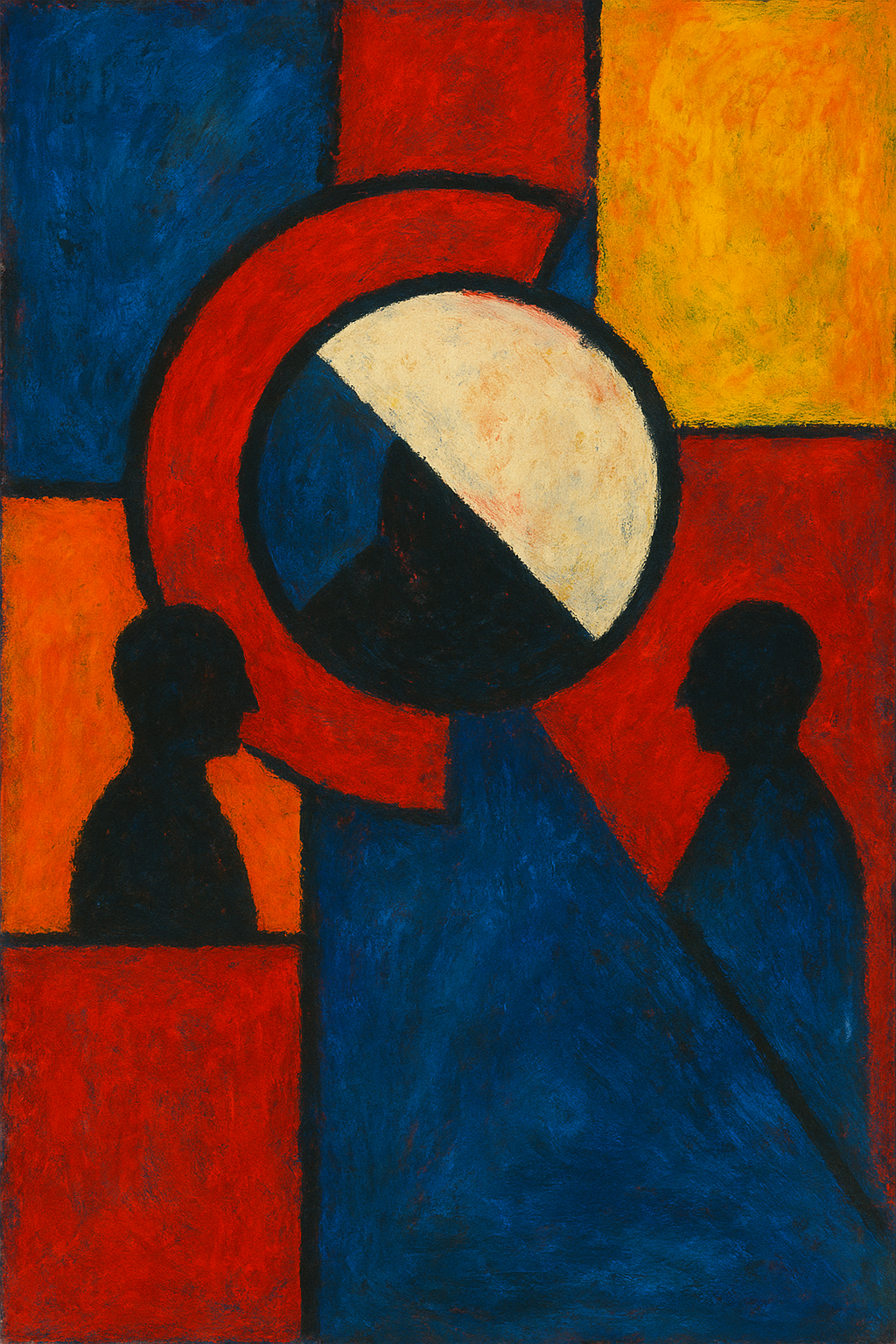The final buzzer hadn’t even finished its jarring cry when the court became a chaotic sea of bodies. Watch the footage. In February 2024, after Wake Forest upset Duke, thousands of students swarmed the floor. In that crush was Duke’s seven-foot center, Kyle Filipowski. As he tried to escape, fans, celebrating students, just like you or your kids, collided with him, shoved him, and left him with an injured knee. “I feel like it was personal,” he said later. Of course, it was personal. We’ve made it that way.
I know what it feels like to be on the receiving end of that hostility. I’ve been booed at away games, had objects thrown in my direction, and heard the creative ways opposing fans can turn your name into a slur. Playing football, running track, rugby, soccer…across every sport, every level, the script was the same. Before away games, coaches would warn us: “Not everyone is going to like you out there. In fact, right now, you’re their enemy.” They weren’t wrong. What they didn’t prepare us for was how that enmity would metastasize beyond the game itself.
My family and friends who made it to the Olympics, who played professionally here and abroad, they all have stories; the fan who followed a sprinter to the hotel, the death threats sent to a rugby player’s family after a controversial call. The racial slurs screamed at a soccer player from the stands, then amplified on social media for days. These aren’t war stories from some bygone era of barbaric sports culture. These are text messages from last month.
Filipowski’s experience is the modern crisis in miniature. This isn’t some shocking anomaly; it’s the logical conclusion of the culture we have built, click by click, bet by bet. We’ve become the architects of the very toxicity we claim to lament. From the phone hurled at artist Bebe Rexha, who needed stitches after being struck at a concert, to the racist harassment that forced WNBA rookie Angel Reese to limit her social media presence, these are not isolated incidents performed by some alien “other.” They are the predictable tantrums of a culture that has replaced admiration with ownership, and support with a transaction. This isn’t a problem out there; the call is coming from inside the house.
Look at what we did to Caitlin Clark and Angel Reese. Two phenomenal athletes who elevated women’s basketball to unprecedented heights, and we weaponized their rivalry. We couldn’t just celebrate their talent; we had to pick sides, create narratives, and then unleash our digital armies when they didn’t perform to our fantasy expectations. When Clark struggled in her first WNBA games, the death threats poured in. When Reese celebrated too enthusiastically, she was labeled “classless” by people who had never stepped foot on a competitive court. We took two young women at the pinnacle of their sport and made them symbols in our culture war.
Let’s be honest about the psychological loophole we so eagerly exploit. We call it deindividuation, a clinical term for the moment we gladly surrender our conscience to the mob. In the anonymous roar of the stadium or the digital echo chamber of a message board, we find a perverse freedom; the freedom from accountability. I’ve felt it myself…that moment when you’re screaming at an opponent and the crowd carries you further than you’d ever go alone. We let the group’s roar drown out our own better judgment. Online, we take it a step further, embracing the online disinhibition effect as a license to be our worst selves. Behind the shield of a screen, we say what we’d never dare say to a person’s face, forgetting that there is, in fact, a person on the other side. We have weaponized our anonymity.
And then there’s the money. We have transformed ourselves from supporters into petty, entitled investors. The explosion of legalized sports betting has rotted the fan experience from the inside out. A missed free throw is no longer a moment of shared disappointment; it’s a direct financial assault. When North Carolina’s Armando Bacot gets over 100 messages from gamblers furious that he didn’t grab enough rebounds for their parlay to hit, that isn’t fandom. That’s the rage of an addict, and the athlete is nothing more than the slot machine that failed to pay out.
This toxic transactionalism has poisoned everything. Look at Noah Lyles winning the 100m at the 2024 World Championships, then collapsing after his 200m bronze with COVID. Instead of concern for his health, social media erupted with accusations that he was “making excuses” and “letting down bettors.” A man literally struggling to breathe became a villain because he didn’t perform to gambling expectations.
In the NBA, we’ve normalized fans screaming personal attacks at players’ families. When Russell Westbrook’s family was repeatedly targeted by fans in Utah, the league’s response was essentially a shrug. When Kyrie Irving was pelted with a water bottle in Boston, we debated whether he “deserved it” for his past comments. We’ve created a culture where athletes are expected to endure psychological warfare as part of their job description.
Don’t think for a second this is limited to the sports arena. We’ve found other, more insidious ways to turn entertainers into our personal stock portfolio. We crowdfund their albums, subscribe to their Patreons, and pay exorbitant fees for concert tickets, creating a direct financial link that breeds a toxic sense of ownership. The artist becomes an employee, and the fan, a disgruntled manager. When a musician changes their sound, or an actor takes a role we dislike, we feel betrayed. The phone thrown at Bebe Rexha isn’t a random act of violence; it’s the fury of a “shareholder” whose investment has gone sour.
We’ve formalized this with college athletes through Name, Image, and Likeness (NIL) deals, but this is just the officially sanctioned version of the unspoken contract we’ve already imposed upon every creator and celebrity. We don’t just consume their art; we consume their lives. And when they deviate from the brand we paid for by setting a boundary, expressing a political opinion, or simply being human; we react with the fury of a consumer who has received a defective product.
All of this plays out on the stage of the attention economy, where we gorge ourselves on a diet of outrage served up by algorithms we know are manipulating us. We are not passive victims of this system; we are its engine. We click. We share. We amplify the poison. Thoughtful analysis is boring; a vicious takedown of a movie or a personal attack on an actor generates engagement. We reward venom with our attention, ensuring that the most toxic voices are the loudest. We have become willing consumers of hate.
Having competed at various levels, I understand the raw emotion of sports. I know what it feels like to have your heart broken by a loss, to feel genuinely angry at an opponent’s tactics, to want to will your team to victory through sheer vocal force. But somewhere along the way, we lost the plot. We forgot that the person wearing the other jersey, the person who just missed the shot, the person who celebrated a little too long; they’re human beings with families, fears, and feelings just like us.
So, how do we fix a problem we are so actively creating? It requires more than just complaining. It requires a collective admission of guilt and a radical assumption of responsibility.
1. A Reckoning for Venues, Leagues, and Promoters:
- Enforce Zero-Tolerance, Period: Stop issuing tepid warnings. Eject, ban for life, and press charges. Make the consequences for assault, because that’s what it is: real and severe. Anything less is cowardly complicity.
- Acknowledge the Money Problem: Leagues, teams, and promoters who profit from these transactional relationships must be held accountable. A portion of every betting partnership or VIP package should be taxed to fund programs combating online abuse and promoting mental health for performers.
2. An Ultimatum for Platforms:
- Break the Outrage Machine: Social media and betting platforms must be forced to take responsibility for the fire they pour gasoline on. Their algorithms are not neutral; they are engines of radicalization. De-amplify inflammatory content. Build in “cool-down” periods for gamblers. Stop hiding behind “freedom of speech” as an excuse for profiting from abuse.
- End Anonymous Abuse: The idea that you have a right to anonymously threaten or harass someone without consequence is a perversion of free expression. Link identity to accounts. Make people own their words.
3. A Moral Inventory for Ourselves:
- Stop Commodifying Human Beings: Athletes and artists are not your fantasy team avatars. They are not entries on your betting slip or your content creators. They are people. Every time you scream at your TV, fire off an angry tweet, or justify your rage because an album disappointed you, you are part of the problem. You are contributing to the dehumanization that allows the mob to form.
- Demand Better from Yourself: Look at your own media diet. Are you feeding the outrage machine? Are you passively scrolling past abuse? Silence is complicity. It’s time to stop pointing fingers at the fan who threw the bottle and start asking what role we played in creating the anger that propelled their arm.
The swarm that injured Kyle Filipowski is the physical manifestation of the digital mobs we create to tear down Caitlin Clark for missing shots, Angel Reese for celebrating, Noah Lyles for getting sick, or any artist who dares to be human. It’s easy to blame the troll or the screaming fan, but they are just the final, ugly expression of a system we all feed. It’s time to stop consuming the spectacle of outrage and start dismantling the machine. Look in the mirror. The worst fan in the world might be staring back at you.




